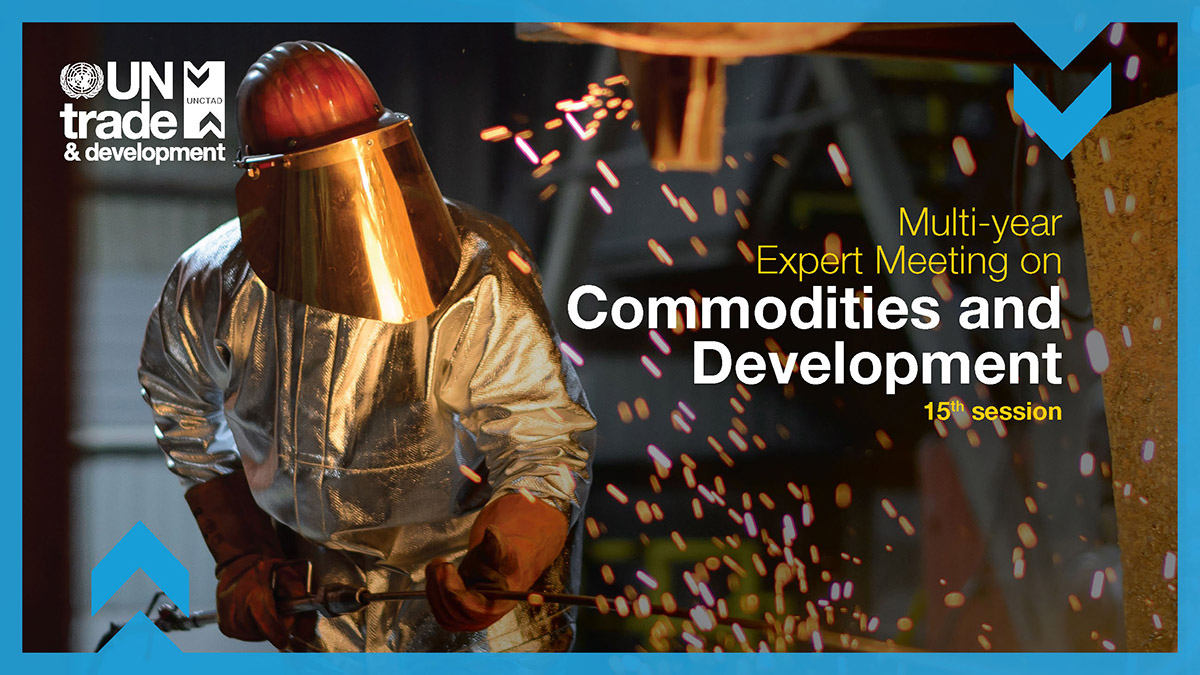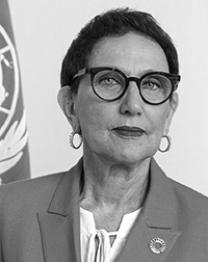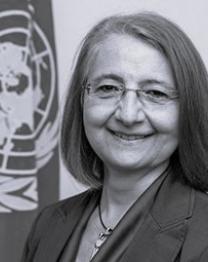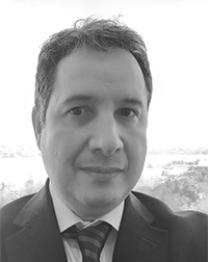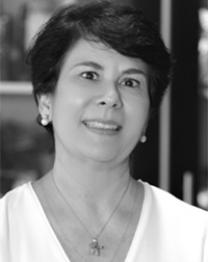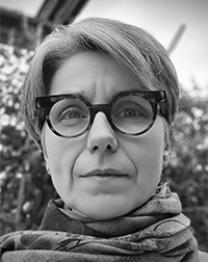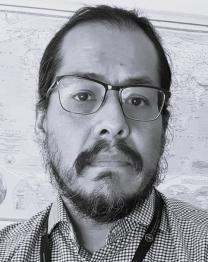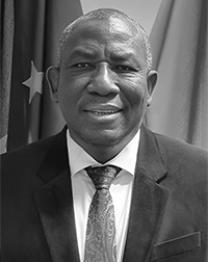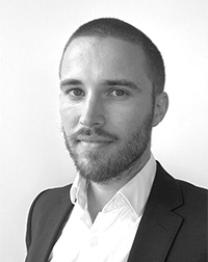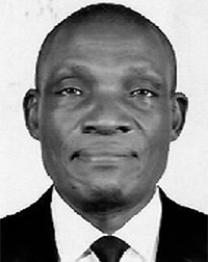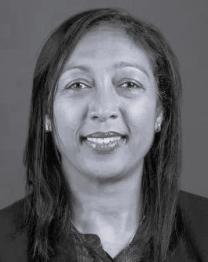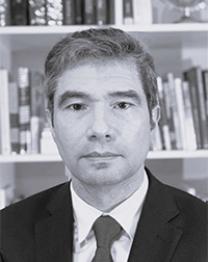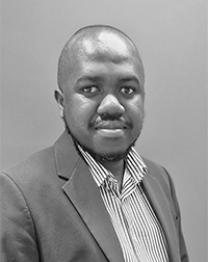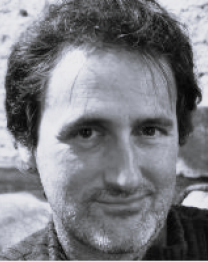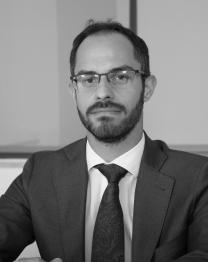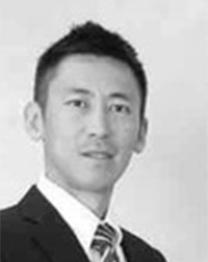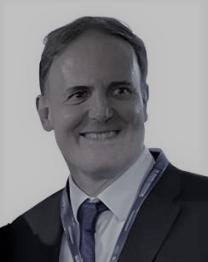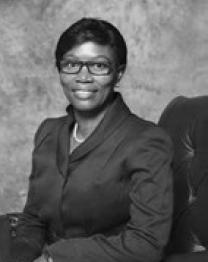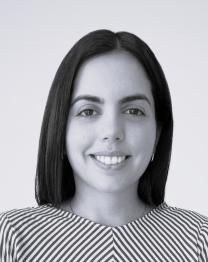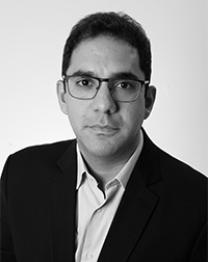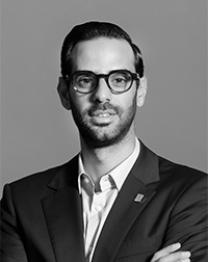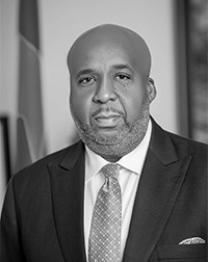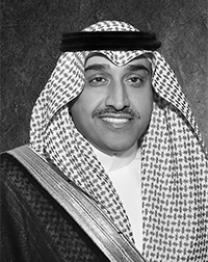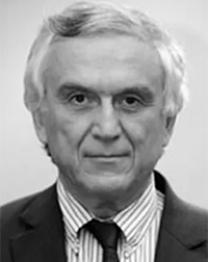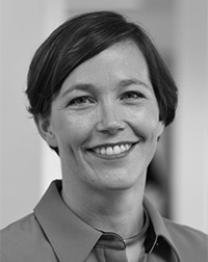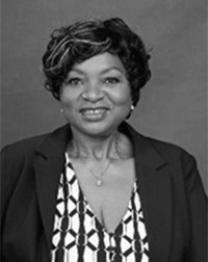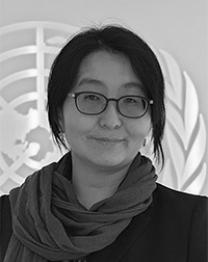The Multi-year Expert Meeting on Commodities and Development aims to monitor developments, challenges and opportunities in commodity markets, giving due attention to those commodity sectors that are relevant to commodity-dependent developing countries.
The meeting will provid a platform for sharing national experiences of successful strategies and policies implemented at the national, regional and international levels to effectively implement structural transformation through domestic value addition in commodity-producing developing countries.
Experts will discuss the strategic shift needed for commodity-producing developing countries to transition from exporting raw materials to processing and manufacturing higher value-added products domestically, within the context of a just energy transition. This approach aims to diversify economies, create jobs and boost national income, thereby reducing commodity reliance and promoting resilience and sustainability.
Key enablers include the following: trade and industrial policy for economic diversification; reliable infrastructure (energy, transport, technology and research and development); access to affordable financing; consistent legal and regulatory frameworks; skilled workforce and environmental sustainability.
Experts will assess the challenges faced in commodity-dependent countries in enhancing the key enablers, achieving structural transformation, strengthening institutional capacity and ensuring good governance and support services.
They will identify the policy actions required to address these challenges by all stakeholders, including Governments, the private sector, civil society organizations and local communities, at the national, regional and international levels.
The meeting will consist of six panel discussions over three days, covering:
- General overview of commodity market trends and prospects.
- Exploration of the theme of "Structural transformation through domestic value addition in commodity-producing developing countries".
- Examination of the management of price volatility of commodities such as critical energy transition minerals.
Each day will be dedicated to a particular commodity category, recognizing their distinct roles in global trade and economics:
- Food and agricultural commodities.
- Minerals, ores and metals, including energy transition minerals.
- Energy commodities such as crude oil, natural gas, coal and renewable energy.
This approach enables focused analysis and policy formulation suited to each category's unique economic impacts, technological dependencies and environmental considerations; and it facilitates discussion on commodities global markets and related policy by addressing specific challenges and opportunities in these sectors.
A special Session on Insights from Brazil’s Port of Suape Study on Economic Complexity will take place on Wednesday 16 October, 1.30-3.00 p.m., in room XXI.
Leveraging economic complexity for diversification and investments: In partnership with SENAI and the port of Suape, UNCTAD will present a recent study on economic complexity carried out at the Suape Industrial Port Complex in Recife, Brazil. The session will look at key takeaways from the study and how it can be used to identifying sectors to diversify, add value, and boost exports in commodity dependent countries.
Participation
The meeting is open to all member States of UNCTAD. Other organizations, including specialized agencies, intergovernmental bodies and non-governmental organizations in the general and special categories, as well as academia and the private sector, may participate as observers.
Registration
Online registration is mandatory for all those wishing to attend the meeting and is required in order to be included in the list of participants.
Contributed Papers
Experts are encouraged to prepare and submit to the meeting brief papers (of about five pages) related to one or more of the issues contained in the provisional agenda and to the experiences of their countries.
The papers will be made available at the meeting in the form and language in which they are received.
Logistics
The session will be held with physical participation in room XVII of the Palais des Nations. Those who cannot attend the meeting in person will be able to listen to the live audio stream in the six official languages of the United Nations.
The link to listen live will be sent to registered participants, at the email address used for registration, one day in advance of the start of the session.
Rebeca Grynspan, of Costa Rica, became UNCTAD's eighth Secretary-General on 13 September 2021 and is the first woman to lead the organization.
Prior to her UNCTAD appointment, she was the Ibero-American secretary-general from 2014 to 2021, also the first woman to head the organization. During her mandate, she has coordinated the 22-member Iberoamerican Conference and led four key summits of Heads of State and Government.
In 2010 she was appointed Under-Secretary-General of the United Nations and Associate Administrator of the United Nations Development Program (UNDP) and prior to that was UNDP Regional Director for Latin America and the Caribbean.
Prior to joining the United Nations, Ms. Grynspan served as Vice-President of Costa Rica from 1994 to 1998. She was also Minister of Housing, Minister Coordinator of Economic and Social Affairs, and Deputy Minister of Finance. In 2021 she was named Special International Advisor to the newly created Economic and Social Council of Argentina and invited to join as member of the G20 High-Level Independent Panel on Financing the Global Commons for Pandemic Preparedness and Response.
In addition to her experience as a lecturer and advisor to several international organizations, she has been actively involved in key United Nations initiatives, such as the Millennium Project's Task Force on Poverty and Economic Development and the High-level Panel on Financing for Development.
In 2014 and 2015, she was recognized as one of the 50 leading intellectuals of Latin America. And she was recognized as one of the 100 most powerful women in Central America by Forbes magazine.
Ms Grynspan holds a degree in Economics by the University of Costa Rica and a MSc in Economics by the University of Sussex. She has been awarded a Doctorate Honoris Causa by the University of Salamanca, the University of Extremadura and the European University of Madrid in recognition of her outstanding professional achievements.
Luz Maria de la Mora is the Director of UNCTAD's Division on International Trade and Commodities. As a former Vice-Minister for International Trade and decades of government and private sector positions, Ms. de la Mora developed a career in international trade policy, negotiation, operations, and trade promotion.
During her tenure as Vice-Minister for International Trade of Mexico from 2018 to 2022, Ms. de la Mora led Mexico's trade and investment policy, overseeing fourteen free trade agreements with 51 countries. To bolster Mexico's development, she steered discussions in the World Trade Organization, the United States-Mexico-Canada Trade Agreement, Comprehensive and Progressive Agreement for Trans-Pacific Partnership, and Pacific Alliance, among others. She also coordinated policy dialogues and handled private sector consultations.
Ms. de la Mora holds a PhD in Political Science from Yale University, USA, a Master's degree in International Affairs from Carleton University, Canada, and a Bachelor's degree in International Relations from El Colegio de México, Mexico.
She is fluent in English and Spanish, and proficient in French.
Rodrigo Cárcamo Díaz is Chief (a.i.) at the Commodities Policy Implementation Section of United Nations Trade and Development (UNCTAD) in Geneva, Switzerland.
During his more than two decades of experience working on different development issues, he has authored different publications on development issues, including journal articles, a book, book chapters and research papers. His current research interests are focused on sustainable agricultural value chains for export in developing countries.
He also leads capacity-building projects on this topic in different developing countries, organizes international policy dialogue events, and represents UNCTAD in different international fora linked to agricultural commodities, trade and development issues.
He holds an MPhil in Economics from the University of Oxford, and a Diploma in Statistics from the Universidad Católica de Chile.
Vanúsia Nogueira is the Executive Director of the International Coffee Organization (ICO). She comes from a family of coffee producers, and started her career at PwC Consulting, where she was a partner and worked for 15 years. She started working directly with coffee in 2002, always focusing on niche markets. She served as executive director at BSCA from 2007 through April 2022 and took over as Executive Director at the International Coffee Organization in May 2022. Vanúsia holds a PhD in Administration/Marketing from Rosario National University in Argentina, a BS in Systems Engineering and Administration from Pontifical Catholic University of Rio de Janeiro (PUC-RJ) and MBAs and post-MBA focusing on Management, Marketing and Advanced Project Management from Fundação Getulio Vargas-Rio de Janeiro (FGV-RJ). (Vanúsia Nogueira – CV)
Peter Clubb is a Market Analyst at the International Grains Council (IGC), an intergovernmental organisation that monitors the global situation of grains, rice, oilseeds and pulses. Peter’s primary focus is on assessing the world supply and demand of rice and rapeseed (canola), including production, consumption, stocks and trade, as well as monitoring other grains and oilseeds. Before joining the IGC in 2017, Peter was the Editor of the Live Rice Index, a specialist rice market publication and price reporting agency, and has accumulated more than a decade of experience in monitoring the global rice trade.
Monika Tothova is a Senior Economist in the Markets and Trade Division of the Food and Agriculture Organization of the United Nations. She leads a team which provides short term outlook for basic food commodities. She also serves as a Secretary of the Agricultural Market Information System, AMIS, a G20 initiative to enhance food market transparency. A national of Slovakia, she earned her Doctorate in Economics and Agricultural Economics from Michigan State University. Before joining FAO in 2012, she worked in the European Commission in Brussels, Belgium and the Organisation for Economic Co-operation and Development in Paris, France.
Mr. Sergio René Araujo-Enciso is an Economist at the Medium-Term Outlook and Market Analysis Team at the Food and Agriculture Organization of the United Nations (FAO). Mr. Araujo-Enciso contributes with market and policy analyses to various pieces of work and publications, including the OECD-FAO Agricultural Outlook. In addition, he also has sound experience in economic modelling. Before joining FAO, Mr. Araujo-Enciso was a research fellow at the European Commission Joint Research Centre (EU-JRC) based in Seville Spain, and a research assistant at the George August Gottingen University in Germany, where he gained his PhD degree.
Professor Adelegan is the Secretary-General of the International Rubber Study Group (IRSG) based in Singapore, the biggest worldwide community in the Rubber Industry. He is a C-Suite Executive and an international development expert, a Professor of Practice of Environmental Science and Engineering and a practitioner-scholar in management with over three decades of distinguished professional trajectory across 24 African Countries, Europe, North America, and Asia. His work experience spans several organizations including the United Nations, development finance institutions, international organizations, government, non-governmental organizations, education, innovation, and research institutions among others. He has extensive experience in the sustainable investment, disruptive innovation, and circular economy of the elastomer products. He has held Senior Roles at the United Nations as the Team Leader at the United Nations Technology Innovation Lab, the first European Lab in Finland and as a Senior Advisor at the United Nations Office of Project Services in Denmark. Professor Adelegan was the Division Chief at the Office of the Vice President of the ECOWAS Bank for Investment and Development, an International Development Financial Institution established by ECOWAS Treaty and covering 15 ECOWAS Countries. He was a representative of Africa and the Middle East at the Climate Investment Trust Fund at the World Bank, Washington DC, United States. His portfolios have included programs and projects funded by the European Union, World Bank, Green Climate Fund, Climate Investment Fund, African Development Bank, ECOWAS, African Union, NEPAD Agency, Foreign and Commonwealth Development Office (FCDO), Australian Aid, several United Nations agencies, and funds among others. Professor Adelegan have held several board appointments, created strategic partnerships, and mobilized resources from development agencies, development finance institutions and several donor agencies. He was a Member of the World Economic Forum Global Agenda Council, Geneva, Switzerland, and Non-Executive Director of the European Sustainable Development Organization among others.
Peter Nielsen is an Impact Investment Manager with the Common Fund for Commodities (CFC), where he manages a portfolio of agriculture and land use investments across Africa, Asia, and Latin America. In his work, he focuses on developing investment cases with dual social and environmental benefits for smallholder farmers in developing countries. As part of this, he oversees the CFC’s strategic work on regenerative agriculture, climate and biodiversity, and outcomes-based financing.
Frederick Itungulu is Principal Ginnery, Ginning Engineer and IT Officer, at the Uganda Cotton Development Organization since 2004. He possesses understanding of the Cotton Subsector including Value Addition related activities having worked with Uganda and Zambia cotton industry.
He is a proficient manager who has directed and managed professionals, support staff and an excellent team player. He has a deep experience as process and maintenance engineer with exceptional trouble shooting, problem-solving and preventive maintenance skills. Frederick Itungulu holds a Master of Science in Engineering , Mechanical Engineering, Zaparozhye Machine Building Institute ( former USSR), a Master of Business Administration in Management, Nkumba University (Uganda) and a Post Graduate Diploma in Computer Science from Kampala International University
Gambah Kpante est Cofondatrice et Responsable Production de CHOCOTOGO qui est la première chocolaterie au Togo créée en 2014. Elle a développé une expertise en tout ce qui concerne la valeur ajoutée au cacao du Togo, la transformation agroalimentaire, la recherche de marché et le développement communautaire. Elle a aussi participé au programme Mandela Washington Fellowship / YALI cohorte 2016 où elle a suivi des cours de business and entrepreneurship à Purdue University aux USA. Elle a également fait un stage dans la première chocolaterie aux USA certifiée en Bio équitale: THEO CHOCOLATE.
Gambah est également promotrice d’une ferme agricole et milite dans plusieurs associations de femmes chef d’entreprises au Togo.
Sa passion est l’entrepreneuriat Agricole, l’autonomisation de la femme et de la jeune fille ainsi que l’épanouissement des enfants
Claire Citeau serves as a Senior Fellow at the Canadian Agri-Food Policy Institute (CAPI), the University of Ottawa and the Canadian Global Affairs Institute (CGAI). She is a distinguished international trade policy expert with extensive experience in global agriculture, trade and sustainability. She is Vice President at the Canadian Meat Council. Claire is also an advisor at the Inter-American Institute for Cooperation on Agriculture (IICA) and the Canada-EU Trade and Investment Association (CEUTIA). As former Executive Director of the Canadian Agri-Food Trade Alliance (CAFTA), she played a key role in advancing industry interests in the context of major trade agreements, including CPTPP, CETA, CUSMA agreements. Claire holds a double MBA in international business and is currently pursuing an LLM in international law. Her extensive background and deep understanding of the nexus between trade, agriculture, and sustainability position her as a valuable asset in advancing global trade policies and agricultural sustainability.
Isabelle Ramdoo is the Deputy Director of the IGF Secretariat and leads its work on local content policies, new technologies in mining and critical minerals. Isabelle is an economist with 25 of experience in international trade and industrial policy. She worked as a senior advisor to the African Minerals Development Centre/United Nations Economic Commission for Africa where she worked on linkages and local content policies. Prior to that, Isabelle was Deputy Head of Programme, Economic Transformation, at the European Centre for Development Policy Management (ECDPM). Isabelle also served the Government of Mauritius for 10 years, where she worked as an economist for the Ministry of Finance and Economic Development and as trade policy analyst for the Ministry of Foreign Affairs and International Trade, respectively.
Clovis Freire Junior is Head a.i. of Commodities Branch, and Chief of Commodity Research and Analysis Section, of the Division on International Trade and Commodities of UNCTAD in Geneva. He is an Economist specialized in economic diversification and strategies for building productive capacities in developing countries. His work supports the structural transformation and sustainable development of commodity-dependent developing countries.
He has over 20 years of work experience in the United Nations in programmes related to commodity dependence, least developed countries, technology and innovation for development, and disaster risk reduction. He holds a degree in Computer Engineering from the Technological Institute of Aeronautics (ITA), Brazil, a Master’s degree in Computer Sciences from the University de Brasília (UnB), an MBA in Strategic Management of Information Systems from the Fundação Getúlio Vargas (FGV), Brazil, and a PhD in Economics from the Maastricht University, in Maastricht, the Netherlands.
Dario is the Director of Sustainable Energy at the United Nations Economic Commission for Europe (UNECE), a region that includes 56 member States in North America, Europe and Asia. In this capacity, he provides analysis, policy advice and assistance to governments for the implementation of the 2030 Agenda for Sustainable Development and the Paris Agreements and to facilitate international cooperation in energy within and outside the region. His professional experience in the energy space spans almost 30 years. Prior to joining UNECE, Dario was the Chief Underwriting Officer at SACE, the Italian State Guarantee Agency, responsible for export credit, the EU Green New Deal and the guarantees under the EU Temporary Framework.
Before joining SACE, Dario spent more than a decade with General Electric (GE), where he was responsible for project financing activities, corporate strategy & business development, corporate finance and investment banking, later serving as Global Head of Government and Export finance, managing the group’s relations with export credit agencies and international financial institutions. He previously worked at the Council of Europe Development Bank and with the European Commission. His career started at Cargill.
Dario Liguti has a MSc in Economics from Bocconi University (Milan) and a MA in EU Law from Leicester University (UK).
Abdoulkarim Saidali is an Associate Economist in the International Trade and Commodities Division at UNCTAD, where he focuses on economic research addressing key development challenges.
Abdoulkarim Saidali has contributed to a diverse range of publications exploring critical issues such as access to agricultural inputs in Togo's cotton sector, the digital practices of informal enterprises in Senegal, and the price volatility of minerals essential for the energy transition, along with their impact on the economic development of producing countries.
Abdoulkarim Saidali holds an engineering degree in applied statistics and economics from the Institut National de Statistique et d'Économie Appliquée in Rabat, and a master’s degree in development and population economics from the University of Bordeaux.
Guillaume Albasini is an independent consultant in the mining, metals and energy sectors. Previously, he was a research officer at the CRES Foundation in Geneva where he carried out various studies on the geopolitics of energy and raw materials and the challenges faced by producing countries. He is a graduate in political science from the University of Lausanne and holder of a Master in international relations from the Graduate Institute of International and Development Studies in Geneva. His most recent research focuses on the impact of the energy transition on demand for energy and mining commodities.
Amrita Dasgupta is an Energy and Minerals Analyst at the International Energy Agency (IEA) in Paris. She has been working on various topics related to clean energy technologies and energy sector decarbonisation for nearly six years on the World Energy Outlook (WEO) team at the IEA. Having co-authored around forty IEA flagship reports, Amrita was one of the lead authors of the IEA’s pioneering 2021 report on The Role of Critical Minerals in Clean Energy Transitions. Since then, she is one of the core members of the team founded to work on the demand and supply outlooks for critical minerals at the IEA. Her areas of expertise include rare earth elements, battery technologies, battery recycling, transport energy demand, solar PV technologies and low-emissions hydrogen production.
Amrita holds a Master’s degree in Physics from EPFL in Switzerland and a dual degree in renewable energy engineering from KTH Royal Institute of Technology in Sweden and École Polytechnique in France. She has previously worked as a scientist and researcher at several cutting-edge research institutions in Europe: in nanomaterials like graphene at the Max Planck Institute for Solid State Research in Stuttgart, ultrahigh efficiency tandem solar cells at Fraunhofer Institute for Solar Energy Systems in Freiburg and perovskite solar cells at École Polytechnique in France.
Romain Perez is an Economist in the International Trade and Commodities Division at UN Trade and Development (UNCTAD), specializing in project management and supporting intergovernmental initiatives to assist commodity-dependent countries. With over 15 years of expertise in global trade, commodity markets, and sustainable development, his prior roles include work at the OECD on G8-G20 negotiations and at UN DESA on sustainable development financing. His research covers trade liberalization, environmental tariffs, and water stress in Sub-Saharan Africa. He has authored several peer-reviewed articles and holds a degree from HEC Paris.
Alexander Bressers is a Senior Oil Market Analyst at the International Energy Agency (IEA), where his primary focus is on global oil demand and prices. Before joining the IEA in 2022, he worked for fifteen years as a commodity portfolio manager and futures trader for a number of banks and investment funds, developing quantitative trading strategies in the energy and agricultural markets. He holds a Master’s degree in economics from the Erasmus University in Rotterdam.
Dr Thierry Bros is a Professor at SciencesPo Paris, a contributor to the Natural Gas World website. In his 30+ years long career, Thierry was Senior Policy Manager & Lead Analyst for an oil & gas organisation in Brussels, Senior European Gas and LNG Analyst in a bank, notably accredited as the best European gas analyst for five years, as well as Senior Financial Equity Analyst, dealing with gas stocks (from upstream to regulated). Previously, Thierry was in charge of Security of Supply at the French Ministry of Economy and Finance where he liberalised the French gas market and supervised the European Contingency Gas Plan. On the academic side, Thierry has been a Senior Research Fellow of The Oxford Institute for Energy Studies and, in his first book, published in 2012, he rightly forecasted that the surge in US oil and gas production was going to deeply alter the energy and geopolitical landscapes. Thierry holds a Master of chemical engineering from ESPCI ParisTech and a PhD from Ecole Centrale Paris.
Christos Papaleonidas is a Director and Partner at Watermeλon Consulting (WM), specializing in LNG and decarbonisation projects. He oversees the development of key energy projects in Europe relevant to LNG terminals, CCUS and alternative fuel supply chains. Christos has been in charge of technoeconomic evaluation and project financing efforts for many projects. WM has worked contributing to financing and funding of approximately 260 mil. EUR. He is also active in research, focusing on the subject of supply chain modelling and optimisation.
Christos holds an M.Sc in Mechanical Engineering (NTUA), an M.Sc. in Naval and Marine Engineering (NTUA) and a PhD from Doctorate of Engineering (NTUA), where he is developing an innovative decision support system for optimizing the LNG supply chain.
Takuro Yamamoto is the General Manager of Business Development of Tokyo Gas United Kingdom Ltd. beginning Apr 2024. Prior to the current position, he acted as the General Manager of Paris Representative Office of Tokyo Gas for 2 years as well as engaged for LNG Trading Department in Tokyo headquarters for 6 years. He also has an experience for taking secondments for working for International Energy Agency and Ministry of Foreign Affairs of Japan. He joined Tokyo Gas in 1999 and started his career in residential sales department and also has experience working in upstream investment project in Australia.
André Pierre Mattei is French-Brazilian and currently works as Director of the Senai Institute of Innovation for ICTs (Brazil), Vice President of the FLIC group (Brazil, France, and USA) and President of the startup GrapeHawk in France. He has post doctoral and doctorate training in computer science, a master’s degree in physics, an MBA in strategic management and processes and a degree in electronic engineering and a eronautical s ciences. He has experience as director of Brazilian and multinational companies, business development in LATAM, technical manager of aerospace programs, university professor (ITA, ISA SUPAERO and MIT), scientific researcher and military pilot.
Gloria Magombo is Permanent Secretary, Ministry of Energy and Power Development (MoEPD). Gloria has more than 33 years of experience in the Energy Sector spanning the fields of engineering, management, power sector reform and regulation. Her key areas of experience and expertise include strategy development and implementation, general management, project management, power plant operations and maintenance, plant optimisation and testing, generation planning, feasibility studies, energy sector regulation and training of technical staff and general management.
Before joining MoEPD, Dr.Magombo served as the Chief Executive Officer (CEO) of the Zimbabwe Energy Regulatory Authority (ZERA). She also worked as the Managing Director of an international consultancy firm, Norconsult Botswana. She also worked as Regional Energy Advisor with Southern Africa Global Competitiveness Hub. She is a former Executive Commissioner of Zimbabwe Electricity Regulatory Commission (ZERC) and she also worked as a Generation Expert for ZESA.
She served as the Regional Chairperson of Capacity Building Portfolio for the Regional Electricity Regulators Association (RERA).
Dr. Magombo served as a Councillor at the Engineering Council of Zimbabwe (ECZ) and was recently appointed as the Vice Chairperson of the Harare Institute of Technology (HIT) Board.
She is a representative of Zimbabwe to the IRENA Council were she is the current chair of the 28th and outgoing Chair of the 27th IRENA Council meetings respectively. She is currently chairing Collaborative Framework on Hydropower. She has been championing the discussions on critical materials for energy transition at International Renewable Energy Agency (IRENA), REN21, and other discussion panels. (The geopolitics, the role and the socio-economic issues including the policies to empower Africa to actively participate in the value chains of critical materials for community benefits). She also chaired the Open Ended Group on IRENA staff tenure. She is currently co-facilitating the IRENA Collaborative Framework on Hydropower. She is a member of the UN Secretary General’s Panel on Critical Energy Transition Minerals.
Dr Magombo is the co-Chairperson of the Zambezi River Authority Board of Directors for Zambia and Zimbabwe. She is also a Board Member of Mathew Rusike Children’s Home Childcare in Zimbabwe, for orphaned and vulnerable children.
Sofia Dominguez is an Associate Economic Affairs Officer in the Division on International Trade and Commodities at UNCTAD. She specializes in economic research focused on development topics related to commodity dependence and commodity-dependent countries. Sofia has contributed to multiple publications covering a range of topics including diversification and inequality, value addition, and trade dynamics along critical mineral value chains. These publications shed light on pressing issues within the field. She holds an MSc in Economics from the University of Warwick.
Mario Guiot is the CEO of Suape Industrial Port Complex. With extensive experience in the port sector, Marcio Guiot has held executive leadership positions in several companies and has worked as a consultant on various projects in the sector. He served as director of Brasil Terminal (Port of Santos), Port of Itapoá, and Libra Terminais Santos. Additionally, he held the position of superintendent at Ceará Terminal Operator (CTO) in the Pecém Complex, located in Ceará.
Graduating in Nautical Sciences from the Merchant Marine Academy of Rio de Janeiro, Guiot holds an MBA from Fundação Dom Cabral, a specialization in ESG (Environmental, Social, and Governance) from the Administration Institute Foundation of the University of São Paulo (USP), as well as executive development courses in Brazil and abroad.
Arthur Neves is the Director of Industrial Management, Suape Industrial Port Complex. Arthur Neves is a lawyer specializing in administrative law from the Federal University of Pernambuco, with a focus on infrastructure contracts, public-private partnerships, and innovation in the public sector.
As the director of the industrial area at SUAPE, he has been leading initiatives for generating critical market intelligence and defining the business attraction model of the Complex, emphasizing a just and green economic transition, production diversification, and increased port activity. In the private sector, he worked as a manager in the third sector and in education in the city of Vitória de Santo Antão, Pernambuco.
Constantinos Chaelis has been with Lloyd’s Register for 10 years and currently holds the position of Global Gas Markets & Technology Lead, based in Athens Greece.
His primary focus is echoing the strategic direction in maritime gas supply chains towards the sustainable growth of the gas segment, engaging with technological developments in gas commodity markets and steering the enhancement of Lloyd’s Register service portfolio to the shipping community.
In the past he held the position of Project Manager & Marine Surveyor for new construction and existing ships in operation for Lloyd’s Register, acquiring robust technical expertise in various global placements including UK, Spain, Italy, Poland, South Korea. Prior experience further enhanced working in the technical management of a tanker fleet for a Greek shipping company.
Constantinos represents Lloyd’s Register in gas associations including the Global Gas Centre and World Liquid Gas Association (WLGA) and is a member of the Investment Board at SEA-LNG. Since 2012 he has represented Lloyd’s Register in several projects, conferences and LR Ship & Naval Technical Committees. Constantinos holds an MEng in Naval Architecture from the University of Southampton, UK and a Chartered Engineer (CEng) status by the British Council. He is a member of the Institute of Chartered Shipbrokers (MICS) and a member of the RINA & IMarEST.
Mr. Aimé Molendo Sakombi is Minister of Hydrocarbons in Democratic Republic of the Congo. Mr. Sakombi is a distinguished public servant and entrepreneur, currently serving as the Minister of Hydrocarbons in the Democratic Republic of Congo (since May 2024). Prior to this, he was Minister of Land Affairs (2019-2024). He also holds elected positions as National Deputy of Mongala Province (2023) and Senator (2024).
Mr. Sakombi's career spans journalism, politics, and business. He founded multiple companies in construction, urban development, and media, including the online news platform 7sur7.cd. He is also committed to social causes through the Molendo Sakombi Foundation.
Educated in Belgium, Aime holds degrees in Communication, Marketing, and Strategy. His expertise is further enhanced by advanced studies in Strategy and Defense.
AlRushaid is the Chairman, President & CEO of AlRushaid Petroleum Investment Group, building on his father’s legacy of innovation, excellence, integrity and compassion. Rasheed AlRushaid is a businessman focused on the energy, mining, and industrial sector and now a driving force in the diversification of the Saudi economy as well. He is also a philanthropist with a keen interest in community service. He is a board member of 33 companies plus the US Saudi Business Council, and a member of the Mining Partnership Council and the Sharqia Development Authority. AlRushaid strongly believes that education is the underpinning of success; that’s why – like his late father – he invests in Saudi Arabia’s next generation of talent. He is a passionate humanitarian and leading of several charitable organizations, including the Abdullah AlRushaid Endowment. AlRushaid holds an EMBA from UCLA Anderson Graduate School of Business and BA from Pepperdine University.
Panos Mitrou has been with LR for 19 years and currently holds the position of Global Gas Segment Director, based in Athens Greece. His primary focus is on the maritime gas supply chains, LNG, LPG and other gas commodities and fuels, as well as gas floating solutions, delivering an enhanced service portfolio to the shipping community.
In the past he has held various commercial and technology positions. Since 2012 he has been deeply involved in the setup and materialization of several funded projects related to alternative fuels and innovation in the maritime sector. In 2013, he has initiated Poseidon Med, a key cross-border European project, introducing LNG bunkering in Eastern Mediterranean maritime transportation.
Panos represents LR in a number of gas associations. He chairs the Methane Abatement in Maritime Alliance and the Marine Working Group of the -World LPG Association. He is a member of the Board at SEA-LNG and the Global Gas Center and a member of the Environmental Committee at SGMF. He is also chairing WG31 at SGMF tasked with Methane Slip Measurement.
Panos holds a Naval Architect and Marine Engineer Diploma from NTUA and an MBA in Shipping from ALBA Business School. He is a fellow member of the Institute of Chartered Shipbrokers. He is also a PhD candidate in Naval Architecture, Ocean and Marine Engineering, at University of Strathclyde with focus on optimizing the shipping transition pathway.
Rouben Indjikian is an adjunct professor teaching energy, commodities, trade finance, digital economy and international economics at Webster Geneva Campus. He organizes events at Webster and is a frequent speaker at international conferences on commodities, energy, trade finance and other topics. Indjikian had a distinguished career of nearly 30 years at UNCTAD where, as an economist and manager, he was in charge of analysis, policy advice and technical assistance in the areas of international trade, finance, e-commerce and commodities. At UNCTAD he drafted many reports, organized conferences, and initiated the Information Economy Report and Global Commodities Forum. He is also the author of a monograph based on his PhD thesis, book chapters and articles in prestigious academic and business journals. His PhD is from the USSR Academy of Sciences Institute of World Economy and International Relations, the leading think tank of the time.
Eliz Ozdemir is Programme Manager at Oil and Gas Climate Initiative (OGCI). Eliz focuses on the Oil & Gas Decarbonization Charter supporting implementation of OGDC’s goals and working closely with the signatories and external partners to drive forward net zero solutions.
Previously, Eliz spent several years in OGCI’s Strategy & Policy team where she led several projects on topics related to methane emissions reduction, decarbonization pathways, net zero strategies, reporting and natural climate solutions. Eliz holds an MSc in Climate Change Management and Finance from Imperial College London.
Anna Schulenburg is the founder of Permutation. Permutation mission is to remove the barriers to purchasing carbon removal. In her previous role at Climeworks, a Swiss company and the first to commercialise Direct Air Capture, she was responsible for developing carbon removal markets by devising original financial and technological business models for carbon removal.
She has built her expertise in deep- and high-tech development and industrialisation in Fintech at Transferwise, the Cambridge University Spin-Out Flusso and the ETH Spin-Out Sensirion, now a world leader in sensor solutions. She holds a PhD from ETH Zurich and a Masters in Chemistry from Oxford University.
Fatima Alhajari is a seasoned expert in media and communication, serving as the Chief of Staff and Head of Media & Communication at AlRushaid Group in Al Khobar. She oversees communication initiatives, advocates for the company brand, and collaborates with marketing teams to shape effective advertising and promotion strategies. Previously, Fatima was an International Affairs Advisor to the Vice Minister at the Ministry of Industry and Mineral Resources in Saudi Arabia. There, she led regulatory affairs and facilitated strategic global partnerships in the mining sector. Her role as Secretary-General at the US
Saudi Arabian Business Council honed her skills in managing organizational strategy and fostering international business relations.
Fatima holds a Bachelor's degree in Business Administration from King Faisal University. She has completed executive programs at Prince Mohammad Bin Salman College, MIT Sloan School of Management, and Harvard Business School, focusing on leadership, strategic management, and social media strategy. Additionally, she is certified by the Capital Market Authority and is a member of The Chief of Staff Association.
Chrisitan Ituome is Advisor to the Minister of Hydrocarbons of the Democratic Republic of the Congo. With over a decade of experience in the banking sector, where he developed a strong expertise in accounting and financial administration, corporate accounting, portfolio management, risk analysis, budgeting, and human resources, Mr Ituome Udjuu has lent his skills to the public sector. He successively held the positions of advisor to the cabinet of the Deputy Prime Minister in charge of the budget (4 years) and then to the Deputy Prime Minister in charge of the national economy (1 year) before joining the Ministry of Hydrocarbons. This diverse career path provides him with a comprehensive understanding of economic and financial issues, as well as the ability to adapt quickly to new environments.
Mrs. Sigam is Economic Affairs Officer at UN Trade and Development (UNCTAD) with 30 years expertise of multilateral level experience, specializing in natural capital governance, who holds an MBA from MIT and has taught economy at university in France.
In the UN system, she has led the development of UNCTAD’s programs on Africa oil & gas trade, risk management, and finance, and forged key partnerships across over 30 countries.
For African Union, she has contributed to the drafting of the Africa Mining Vision (AMV) and played a key role for its implementation, through the establishment of the African Mineral Development Center, now an AU specialized agency where she led Human and Institutional capacity development.
She is currently developing for UNCTAD a program on Diversification and Just Transition for oil and gas producing developing countries and also serves on the boards of nonprofits in Africa and Switzerland.
Uyanga Gankhuyag is a development economist specialized in extractive industries policies. She leads UNDP’s work on extractive industries for sustainable development and managing the ACP-EU Development Minerals Programme implemented by UNDP. She worked for over 10 years in policy analysis and programming in extractive industries, serving mineral-producing developing countries. Her current work is focused on African, Caribbean and Pacific countries. In Asia Pacific, she led regional capacity development initiatives on extractive industries, climate and natural resource modelling, and the coordination of the Asia Pacific Economists network. Uyanga has authored or contributed to multiple publications in areas of managing mining for sustainable development, natural resource revenue-sharing, fiscal transfers, poverty and inequality, financing social services using extractives revenues, and conflict prevention in resource-rich countries. She also served in New York where she has worked on UNDP’s strategy and programming on extractive industries for sustainable development, as well as wider economic development and poverty reduction. Coming from Mongolia, a country that relies on mining for its development, she is passionate about resource-rich and resource-dependent countries advancing their development in a sustainable manner.

